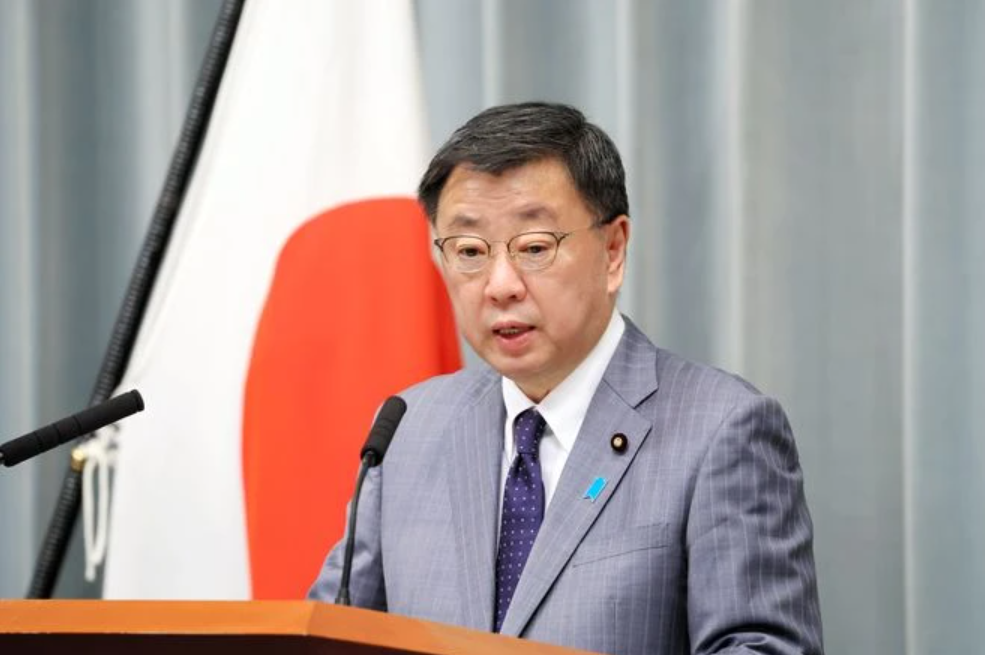 Chief Cabinet Secretary Hirokazu Matsuno at a news conference in Tokyo on March 22 (Asahi Shimbun file photo)
Chief Cabinet Secretary Hirokazu Matsuno at a news conference in Tokyo on March 22 (Asahi Shimbun file photo)
Tokyo demands China free Japan national detained in Beijing
Tokyo has demanded that China release a Japanese national who was detained in Beijing earlier this month on suspicion of spying, Japan’s top government spokesperson said Monday.
Chief Cabinet Secretary Hirokazu Matsuno told a news conference that Japan's Embassy in China was informed by Chinese authorities that a Japanese man in his 50s was taken into custody in Beijing earlier in March.
Chinese Foreign Ministry spokesperson Mao Ning said in Beijing that “the Japanese citizen is suspected of engaging in espionage activities in violation of the criminal law ... and the Anti-Espionage Law of the People’s Republic of China.”
All foreigners who visit and live in China “must abide by Chinese laws, and those who break the law and commit crimes must be held accountable according to the law,” Mao said at a regular news briefing.
He said that similar cases involving Japanese citizens have occurred repeatedly and urged the Japanese government to “strengthen education among its citizens and send them reminders.”
In Tokyo, Matsuno said the Japanese government had demanded the early release of its citizen. Japan also requested that Chinese authorities allow the man access to Japanese consular officials. He said Japan's government is providing as much support for him as possible, including communicating with relevant parties.
A Japanese pharmaceutical company, Astellas Pharma Inc., acknowledged that the man detained is its employee, but declined to disclose further details, including his name, position and whether he is based in China. The company said it was seeking information from the Japanese Foreign Ministry.
More than a dozen Japanese citizens with business or other connections to China have been arrested in the past over allegations including spying. A Japanese diplomat was detained for questioning in 2022 and released hours later, prompting strong protests from Japan.
Tokyo and Beijing have been increasingly at odds in recent years as Japan considers China's growing influence in the region as a threat to its national security and the economy.
Source: https://www.asahi.com/ajw/articles/14871573
 English
English Japan
Japan
